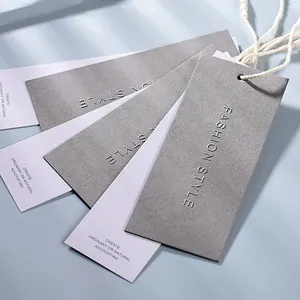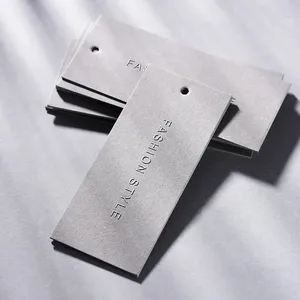
All categories
Featured selections
Trade Assurance
Buyer Central
Help Center
Get the app
Become a supplier

(6583 products available)


















































Eco friendly string for hang tag is made from natural materials; they are biodegradable and do not harm the environment. These strings are available in different types to suit various applications and preferences. Here are some of their key types.
Cotton Strings
Cotton strings are popular for their softness, strength, and versatility. They are ideal for hanging tags on clothing, accessories, and home goods. Organic cotton strings are a sustainable option as they are grown without harmful chemicals. Cotton strings are easy to dye, making them suitable for custom tag applications where color coordination is essential.
Jute Strings
Jute strings are known for their ruggedness and natural golden hue. They are perfect for eco-friendly hang tags, providing a rustic, organic look. Jute is a biodegradable fiber, making it an excellent choice for sustainable packaging solutions. Jute strings are strong and durable, suitable for heavier tags or products.
Sisal Strings
Sisal strings are made from the fibers of the agave plant. They are known for their strength and stiffness, making them suitable for industrial applications and heavy-duty hang tag requirements. Sisal strings are biodegradable and have a low environmental impact. They are also resistant to moisture and chemicals, making them suitable for outdoor or industrial settings.
Bamboo Strings
Bamboo strings are a newer addition to the eco-friendly string market. They are soft, flexible, and strong, making them ideal for delicate hang tag applications. Bamboo is a fast-growing, renewable resource that requires less water and no pesticides to grow. Bamboo strings are naturally antibacterial and biodegradable, making them a healthy and sustainable option for various products.
Hemp Strings
Hemp strings are one of the strongest natural fibers, making them ideal for heavy-duty applications. They are resistant to UV light and mildew, making them suitable for outdoor products. Hemp is a sustainable crop that requires less water than cotton and does not require pesticides. Hemp strings are biodegradable and have a low environmental impact.
Flax Strings
Flax strings are made from the fibers of the flax plant. They are known for their strength and durability, making them suitable for various hang tag applications. Flax is a sustainable crop that requires less water and no pesticides. Flax strings are biodegradable and have a low environmental impact.
Eco-friendly strings for hang tags can be incorporated into various designs to create a cohesive brand image while highlighting sustainability. Here are five wearing and matching suggestions:
Natural and Rustic Look
Eco-friendly strings such as jute twine or hemp string are used to complement hang tags made of recycled paper or cardboard. This combination enhances the organic and rustic aesthetics of the product packaging. They are ideal for artisanal goods, handmade products, or organic food items. The natural brown color of the jute or hemp adds an earthy tone, while the recycled paper tag maintains an eco-friendly appearance. A simple knot or a double bow ties the tag onto the product, providing a straightforward yet charming attachment method.
Elegant and Minimalist
Eco-friendly cotton strings or bamboo strings are used to attach hang tags made of biodegradable plastics or seed paper. This provides a sleek and modern look with an emphasis on sophistication and sustainability. Biodegradable plastic tags have a smooth finish and can be printed with fine details. They are ideal for high-end fashion items or luxury cosmetics. A single strand of cotton or bamboo string is threaded through a small hole in the tag, providing a clean and unobtrusive attachment. The cotton or bamboo string blends seamlessly with the biodegradable tag, creating a unified look that highlights the brand's commitment to sustainability.
Colorful and Playful
Eco-friendly strings such as colored cotton strings or recycled polyester strings complement hang tags made from eco-friendly fabrics or upcycled materials. This combination allows for a vibrant and cheerful presentation. The colored strings can match or contrast with the colors of the cotton string or polyester string. They are suitable for children’s products, toys, or home decor items. The tags can be attached using a playful knot or a small plastic eco-friendly string tag fastener, allowing for easy removal and reattachment. This method adds a touch of fun and creativity to the product presentation, attracting the attention of environmentally conscious consumers.
Vintage and Retro
Eco-friendly strings such as sisal twine or bakers twine are used to attach hang tags made of kraft paper or old-fashioned labels. This approach captures a nostalgic and timeless aesthetic. Sisal or baker’s twine adds a tactile element that evokes a sense of history and tradition. They are ideal for gourmet food products, vintage clothing, or retro-style home goods. A simple knot or a decorative bow secures the tag to the product, enhancing its vintage appeal. The kraft paper tags resemble old labels, and they can be stamped or printed with retro-style fonts and graphics.
Functional and Informative
Eco-friendly strings such as nylon strings or recycled polyester strings are used to attach hang tags made of waterproof or tear-resistant materials. This combination is practical for products that require detailed information and instructions. These tags are ideal for outdoor gear, sports equipment, or industrial tools. The tags are secured with a sturdy knot or a small plastic fastener that allows for easy adjustment and removal. The durable materials ensure that the tags remain legible and intact, providing consumers with essential information without compromising the product's functionality.
Q1: What are the benefits of using eco friendly strings for hang tags?
A1: Eco-friendly strings for hang tags offer several benefits, including sustainability, biodegradability, and reduced environmental impact. They are typically made from natural or recycled materials that do not contribute to pollution or waste in the long term. This makes them an excellent choice for brands looking to enhance their eco-friendly credentials and appeal to environmentally conscious consumers.
Q2: What materials are used to make strings for tag hangs?
A2: Eco-friendly strings are made from various materials. Some popular ones include organic cotton, jute, hemp, bamboo, and recycled polyester. Organic cotton is favored for its softness and versatility, while jute and hemp are appreciated for their strength and durability. Bamboo strings are becoming increasingly popular due to their rapid growth and minimal environmental impact. Recycled polyester strings are made from post-consumer plastic bottles, offering a sustainable option that helps reduce plastic waste.
Q3: Can eco-friendly strings support heavy tags?
A3: The strength and durability of eco-friendly strings vary depending on the material used. Jute and hemp strings are particularly strong and suitable for hanging heavy tags. Bamboo strings also offer good strength while remaining lightweight. For lighter tags, organic cotton and recycled polyester strings are excellent choices. It’s essential to consider the weight and size of the tags and choose a string material that can support them effectively.
Q4: Are eco-friendly strings available in different colors and lengths?
A4: Yes, eco-friendly strings for hang tags come in various colors and lengths to suit different applications and aesthetic preferences. Manufacturers often offer customizable options, allowing brands to select specific colors and lengths that match their branding and design requirements. Whether for product labeling, gift tagging, or decorative purposes, there are eco-friendly strings available to meet diverse needs.
Q5: How do eco-friendly strings compare to synthetic strings?
A5: Eco-friendly strings offer significant advantages over synthetic strings regarding environmental impact. Unlike synthetic strings made from petroleum-based materials, eco-friendly strings are derived from natural or recycled materials, reducing pollution and waste. While synthetic strings may offer higher durability and resistance to weather, eco-friendly strings can provide adequate strength for most indoor applications and are biodegradable at the end of their life cycle. This makes them a more sustainable and environmentally friendly choice for various tagging and labeling applications.